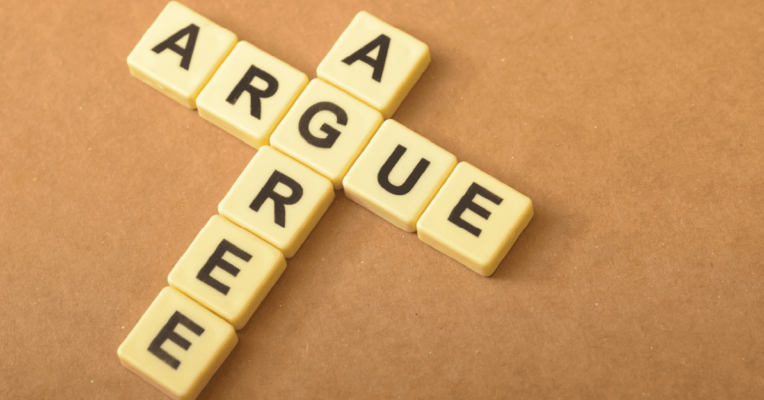What Is an Estate Plan?
Estate planning is a crucial process that allows individuals to organize their finances and assets, ensuring a smooth transfer of wealth to their loved ones after their passing.
While contemplating mortality can be uncomfortable, creating an estate plan is an act of love and responsibility towards family members and beneficiaries.
A comprehensive estate plan checklist provides peace of mind—your wishes will be fulfilled, and your loved ones will be cared for.
What is an estate plan?
An estate plan is a collection of documents that manage your personal and financial affairs in case of incapacitation or death.
Think of it as a personal business plan consisting of documents that take effect during your life (e.g., powers of attorney, health care directives, a revocable trust) and at your death (e.g., a last will and testament). It incorporates tax planning, legacy planning, and charitable giving, and reflects your life’s important relationships and causes.
At it’s core, it makes a clear plan for the disposition of assets at your passing.
A basic estate plan includes the following:
- Will: a legally enforceable document describing how a person wishes their property to be distributed after death.
- Living Trust or Revocable Living Trust: a trust established during an individual’s lifetime allows for privacy and probate avoidance upon death. This works with a will to streamline asset ownership and titling to avoid probate at death. Differentiating factors can include state of residence, relevant probate rules, costs, and personal preference.
- Power of Attorney: a legal document giving a person legal authority to make decisions about the principal’s property, finances, or medical care while the principal is alive.
- Advanced Directive: a document expressing a person’s wishes about critical care when they are unable to decide for him or herself. This details an individual’s wishes around life-sustaining measures. It gives a medical power of attorney direction in those extremely difficult times.
A Basic Estate Plan Checklist
- Take stock of your assets and liabilities
- Draft a will
- Choose your beneficiaries and fiduciaries
- Establish powers of attorney and other core documents
- Review and update regularly
Step 1: Take Stock of Your Assets and Liabilities
Before making a plan, work out what you have and create an inventory of all your assets and liabilities. That is – what do you own, what do you owe?
List your real estate properties, investments, retirement accounts, bank accounts, life insurance policies, business interests, and valuable personal belongings.
Determine their approximate values and identify any outstanding debts, such as mortgages, credit card balances, or loans.
A clear understanding of your financial standing is essential for making informed decisions about how you want your assets distributed among your heirs.
Step 2: Draft a Will
A will is a fundamental component of an estate plan.
A will is a legally binding document specifying how you want your assets distributed and who will carry out your wishes.
In your will, you can name guardians for minor children, establish trusts for their care and education, and provide for the distribution of specific assets to beneficiaries.
If you pass away without a valid will (intestate), state laws will govern the distribution of your assets, which might not align with your wishes.
Review your will periodically to ensure it reflects your current wishes—especially after significant life events like marriage, divorce, or the birth of children or grandchildren.
When drafting a will, you should consider the following:
- Personal Representative: The person who will wrap up your personal affairs in the event of your death and carry out the provisions of your will. This person may also be called executor (male) or executrix (female).
- Trustee: The fiduciary is responsible for any assets left in a trust.
- Guardian: The guardian will be responsible for caring for any minor children. This can be the same person as the trustee, but it does not have to be.
- Specific Gifts: These can be for people or organizations. Typically, particular gifts are identified as a specific dollar amount or percentage of the overall estate.
- Personal Property: If there is any personal property (art, jewelry, furniture, collectibles, etc.) that is to be directed to a specific person, this may be done as a supplement to a will, depending on your jurisdiction. It can be by a handwritten or typed list and can be updated as often as needed, as long as each update is dated and signed.
- Residuary Estate: After specific gifts and personal property, deciding how the remaining assets will be disbursed is necessary. For any assets left in trust for a beneficiary (like a minor child), when should they have access to funds? (For example, 25 percent at age 25, 25 percent at age 30, and the remainder at age 35, etc.)
Whom should I appoint as my executor?
Ensure the chosen executor is willing to take on the responsibilities involved, such as managing your estate, settling debts, and distributing assets according to your wishes. This does not need to be a family member, but can be a close friend, advisor, or someone else you trust.
Further Reading: Demystifying Estate Planning Terminology
Step 3: Choose Your Beneficiaries and Executors
Decide who will inherit your assets upon your passing.
Consider the needs and circumstances of your potential beneficiaries, such as your spouse, children, grandchildren, or charitable organizations. You may want to provide for specific family members who require additional support, like a minor child.
Select a personal representative or executor to carry out your wishes and manage your estate. The personal representative will handle tasks like probate proceedings, asset distribution, and settling outstanding debts, so make sure to choose someone up to the task.
Further Reading: What to Do Upon the Death of a Loved One
Who is a beneficiary?
A beneficiary is an individual or entity designated to receive assets, property, or benefits from a trust, will, life insurance policy, retirement account, etc.
Who is an executor?
An executor (a personal representative or administrator) is an individual or entity appointed in a person’s will to carry out the instructions outlined in the will and manage the distribution of their estate after their death.
Like other fiduciaries, executors are bound by statutory duties (like the duty of loyalty) to administer the estate according to state law.
Step 4: Establish Powers of Attorney and Other Core Documents
When drafting other core documents, like powers of attorney, it is best to separate financial and medical matters into two documents. In those documents, one should consider the following:
- Agent for Financial Affairs: The person who will step in and carry out financial maintenance and decisions on an individual’s behalf in the event of incapacitation. This person may also be referred to as the “attorney-in-fact.”
- Agent for Medical Affairs: The person who will step in and make medical decisions on an individual’s behalf in the event of incapacitation. This person may also be referred to as the “attorney-in-fact.”
- Timing: When the power will become active. Often, the power is granted immediately (even if one is not incapacitated) for spouses and upon incapacity for non-spouses.
- Successor Agents: Ideally, you would name a backup for the primary agents in case the primary is unable to serve.
Where a will covers the basics of asset distribution at death, trusts can offer additional benefits and protections for your loved ones. Trusts come in various forms and can be tailored to specific needs. Importantly, trusts take effect during your life and can be used for asset titling.
What is a living trust?
Also known as a revocable trust, this trust allows you to transfer assets into the trust during your lifetime. It bypasses the probate process, ensuring a quicker and more private distribution of assets to beneficiaries.
Establishing a living trust is one of the most effective ways to avoid probate. When property is in your own name, probate must take place where that property is located. If you own a vacation home in Boulder and Palm Springs, you’d also have to open probate in Colorado and California, opening you up to probate in multiple jurisdictions. A living trust avoids those probate requirements.
What is a testamentary trust?
This trust is created through your will and comes into effect after your passing. It is commonly used to protect and manage assets for beneficiaries, often minor children or beneficiaries with unique circumstances.
What is an irrevocable trust?
Once established, this trust cannot be modified or revoked, save for a narrow set of reasons dictated by state statute, which requires court intervention or the consent of all interested parties. It is often used for tax planning and protecting assets from creditors.
What’s the difference between a revocable and irrevocable trust?
A revocable trust provides more flexibility and control during the grantor’s lifetime but becomes irrevocable upon death.
An irrevocable trust offers potential tax advantages and asset protection but requires relinquishing control over the assets placed in the trust.
Trusts can be highly effective tools in estate planning, providing flexibility, asset protection, and tax advantages when used and funded correctly. Consulting with an estate planning attorney will help determine which trust best fits your circumstances and goals.
Step 5: Review and Update Regularly
Estate planning is not a one-time task; it requires periodic review and updates to ensure it remains relevant and reflects changes in your life circumstances. Don’t know where to start? Your Brighton Jones team may help point you in the right direction.
Revisit your plan at least every few years or when significant life events occur to ensure it meets your intentions.
Watch Webinar On-Demand: Estate Planning for Your Family’s Financial Future
An estate plan is a key piece of a comprehensive financial plan. It takes time and money to put in place, but it is well worth it to ensure that your wishes are carried out and legal proceedings are completed as easily and efficiently as possible for your loved ones.




